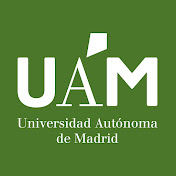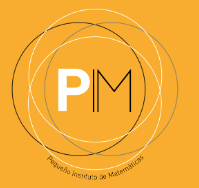Investigación
Noticias Destacadas
 Agenda del Departamento Agenda del Departamento |
- Información (provisional) sobre grupos y horarios de las asignaturas impartidas por el Departamento de Matemáticas, para el curso 2023-2024.
- Propuestas de Trabajos de Fin de Grado para el curso 2023-2024.
|
Canal @matematicasuamEnlace al canal del Departamento en youtube. |
PIM (Pequeño Instituto de Matemáticas)Con el objetivo de fomentar el interés por las matemáticas y dirigido a jóvenes entre 14 y 18 años, nace este proyecto de Instituto de Ciencias Matemáticas (ICMAT) en colaboración con nuestro Departamento, la Universidad Autónoma de Madrid y la Real Sociedad Matemática Española. El proyecto comienzó en el curso académico 2022-2023. Ampliar información en su página web. |
Seminario teoría de grupos UAM-ICMAT
Yago Antolín
(UAM)
"Counting with the falsification by fellow traveler property"
Jueves 15/2/2018
11:30, Aula 520, UAM
Abstract: The falsification by fellow traveler property was introduced by Walter Neumann and Mike Shapiro following ideas of Cannon in their study of Cayley graphs of geometrically finite hyperbolic groups. Among other things, they showed that it implies that the growth of a group is rational.
In this talk will revise this property and we will use it in the context of locally finite vertex-transitive graphs to count 'convex' subgraphs, generalizing results of Epstein, Iano-Fletcher and Zwick, and of Calegari and Fujiwara. As a consequence, we get that if G is a non-elementary hyperbolic group, then there is a lower bound on the growth rate of its Schreier graphs with respect to infinite index quasi-convex subgroups.






